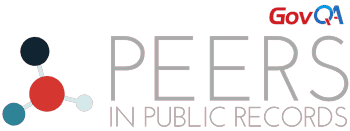The American Rescue Plan Act (ARPA) continues to offer substantial resources to eligible state, local, territorial, and tribal governments as they rebuild and address the pandemic’s economic impact. ARPA funds are available to governments that qualify; yet, some have not pursued this avenue of help. Like other financial programs, ARPA has some common misinterpretations, impacting how agencies believe they can attain funds and how they may be used. Let’s address the top 5 misconceptions about ARPA which can create roadblocks for some government agencies.
Misconception #1: I have to get my funds from the state (or county).
The American Rescue Plan enables the Treasury to deposit $350 billion for eligible state, local, territorial, and Tribal governments directly into the bank accounts of those entities. So most agencies do not have to request funds from the state. However, non-entitlement units of government (such as those with populations under 50K) do not get funds directly deposited from the Treasury into their bank accounts; they must get their funds from the state.
Misconception #2: My agency may not be eligible to get funds.
While some agencies are considered non-entitlement units (those with populations under 50K), nearly all state, local, tribal, and many special district governments DO get ARPA funds. Visit the Treasury portal to look up your agency to see if you get direct funds. If you think your agency should be getting direct funds and your county or city is not included on the Treasury portal, reach out to NACo or NLC for assistance in remedying any errors and getting added to the portal.
Misconception #3: My agency can’t use ARPA funds for what we really need.
Agencies have flexibility within defined categories when determining how to best use ARPA funding, including:
- Supporting public health expenditures
- Addressing negative economic impacts caused by the public health emergency
- Replacing lost public sector revenue
- Providing premium pay for essential workers
- Investing in water, sewer, and broadband infrastructure
The only explicit things ARPA funds CANNOT be used for are:
- Directly or indirectly offsetting tax reductions or delaying a tax or tax increase
- Depositing into any pension fund
Misconception #4: ARPA funds cannot be used for SaaS, software licenses, or ongoing budget items beyond December 31, 2026.
Because GovQA essentially pays for itself (and your organization can fund the initial investment using ARPA funds), purchasing GovQA on an annual contract is not only affordable, but will save you money. The costs of NOT buying GovQA to remedy your public records challenges now, however, could be enormous:
- Request volume increases, already climbing, will continue to pull staffing and IT resources from your budget if you DON’T act to modernize your process. This will cost you full time salary and benefit costs for adding staff to manage backlog…and it will cost you time and money maintaining aging and outdated manual or on-prem solutions.
- Litigation is a big financial risk if you don’t get your public records house in order. Non-compliance fines vary from state to state; but any agency can be sued for failure to provide records – which means you could be looking at legal fees and reputation damage.
Misconception #5: GovQA fits in the “Broadband” infrastructure eligibility category.
The intent of the “Broadband” language in the American Rescue Plan Act category 4 of eligible use is very specifically written to get high speed internet access to unserved and underserved areas of the country.
However, GovQA DOES fit into category 1 “Responding to public health crisis” and category 3 “Provision of Government Services”. All language in “quotes” is direct from the ARPA Final Interim Rule PDF (100+ page document from Treasury).
Category 1: Responding to the public health crisis:
- “enforcement of the public health orders” – 26789, 26790, 26821
- State and local government staff working remotely
- Requesters accessing remote government services
- “public communication efforts” 26789-90
- This is the purpose of public records
- All agencies had to respond to the public health crisis with communication efforts
- “information technology” 26821
- Public records must come out of the dark ages of paper and modernize to the level of technology that citizens expect from the private sector. It’s not acceptable to require walk-in, phone calls, faxes, or written requests anymore. Manual methods are inefficient and cost taxpayers more money than automating with GovQA.
- “establishing or enhancing public health data systems” – 26822
- Agencies which house public health records can use this eligibility rationale. If your agency houses public health data which is responsive to public records requests, GovQA is an excellent solution. Ask us for DOH and other public health customer referrals.
- “Improvements to data or tech infrastructure and data analysis”. 26791
- Moving from archaic paper trails to the automated, digital audit trails and reporting you get with GovQA is night and day.
- “addressing systemic public health and economic challenges” such as “access to health and social services” – 26796 (manual public records systems steal resources which could be used for more beneficial programs)
Category 3: Provision of Government Services:
- “to the extent of a reduction in general revenue” including modernization of cybersecurity and provision of public safety services”
- includes “modernization of cybersecurity” and “provision of public safety services” – 26801
Additionally, the fact that ARPA funds can be used to replace revenue lost during the pandemic (the “economic recovery” goal of ARPA), means that budgets are essentially reset to pre-pandemic levels. So, if there was money for GovQA prior to the pandemic, there is still money for GovQA.
ARPA funds can help stimulate economic recovery within government agencies and provide much needed resources to alleviate the pandemic’s wide-reaching financial impact. For additional information on ARPA resources and how GovQA software as an eligible expense can strengthen your agency’s systems, visit GovQA.com.
Join the Conversation. What are your peers prioritizing as they look to 2022?
Take the 2022 Peers In Public Records Survey.

The Peers in Public Records Newsletter (formerly FOIA News) is a bi-monthly e-newsletter brought to you by GovQA. It is a collection of the latest trends in public record requests and government transparency initiatives, shared stories, live roundtables, informative case studies, and actionable knowledge that will help you calm the chaos and keep your organization compliant. Send your comments to peers@govqa.com.
Subscribe to the Peers in Public Records Newsletter
© Copyright 2021. PiPRSurvey. All rights reserved.


